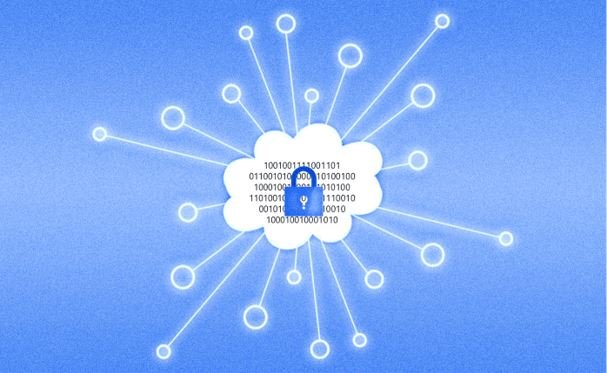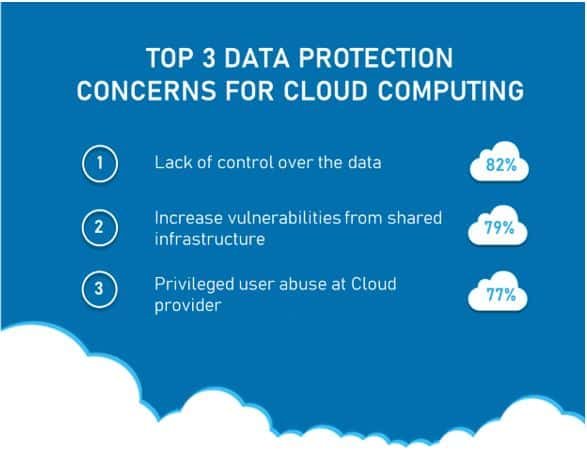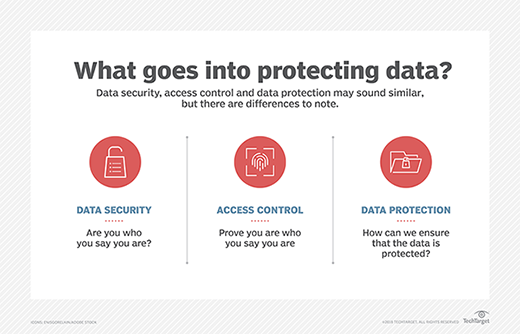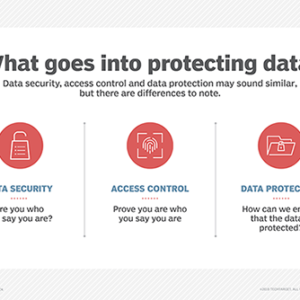I know you may have concerns about the privacy of your data when using cloud-based home security systems. It’s important to feel confident that your personal information and footage from your security cameras are secure. In this article, we will explore how you can protect your data and ensure your privacy when utilizing these modern security systems.
As you dive further into this article, you’ll discover various tips and strategies to safeguard your data when using cloud-based home security systems. We will discuss the importance of choosing a reputable and secure provider, understanding their privacy policies, and implementing additional security measures. With this knowledge, you’ll be equipped to make informed decisions that prioritize the privacy of your data and enhance the overall security of your home. So, let’s explore how you can ensure the privacy of your data when using cloud-based home security systems together! With the increasing popularity of smart home devices, more and more homeowners are turning to cloud-based home security systems for their convenience and ease of use. However, as with any technology that involves the storing and processing of personal data, there are concerns about data privacy and security. In this article, we will explore the potential risks and vulnerabilities of cloud-based home security systems, as well as provide tips on how to ensure the privacy of your data.

This image is property of www.businesstechweekly.com.
Understanding Cloud-based Home Security Systems
Cloud-based home security systems utilize the power of the internet and cloud computing to provide homeowners with greater flexibility and control over their security measures. These systems typically consist of a central hub that connects to various devices and sensors throughout the home, such as cameras, motion detectors, and door/window sensors. The data collected by these devices is then stored and processed in the cloud, allowing users to access and manage their security system remotely via a mobile app or web interface.
Advantages of using cloud-based home security systems
There are several advantages to using cloud-based home security systems. Firstly, they offer a high level of convenience and accessibility. You can monitor and control your security system from anywhere using your smartphone or computer, providing peace of mind even when you are away from home. Additionally, cloud-based systems often provide real-time alerts and notifications, allowing you to respond quickly to any security events.
Another advantage of cloud-based systems is the ability to store and review video footage and other security data remotely. This can be particularly useful in the event of a security breach, as it allows you to provide evidence to law enforcement or insurance companies. Furthermore, cloud-based systems are typically more scalable and flexible than traditional wired security systems, allowing you to easily add or remove devices as needed.
How cloud-based home security systems work
Cloud-based home security systems rely on a network of devices and sensors to monitor various aspects of your home’s security. These devices collect data, such as video footage or sensor readings, and send it to a central hub via wireless communication protocols such as Wi-Fi or Zigbee. The hub then securely transmits the data to the cloud, where it is stored and processed.
In the cloud, the data is encrypted and stored in secure servers owned and managed by the security system provider. The provider typically employs robust security measures, such as firewalls and intrusion detection systems, to protect the data from unauthorized access. Users can access their security system and view the collected data via a mobile app or web interface, with the data being decrypted and presented in a user-friendly format.
Data Privacy Concerns with Cloud-based Home Security Systems
While cloud-based home security systems offer numerous benefits, there are certain privacy risks associated with their use. It is important to be aware of these risks and take necessary precautions to protect your data.
What are the privacy risks associated with cloud-based home security systems?
One of the main privacy risks associated with cloud-based home security systems is the potential for unauthorized access to your data. If the security system provider’s servers are not adequately protected or if there is a security breach, malicious individuals could gain access to your personal information and recorded video footage. This could potentially lead to identity theft or enable intruders to target your home.
Another privacy risk is the collection and use of your personal data for purposes other than home security. Some security system providers may collect and analyze user data to improve their services or for marketing purposes. While this data is typically anonymized and aggregated, there is still the potential for your personal information to be exposed or used in ways that you may not be comfortable with.
How data is stored and processed in the cloud
When it comes to data storage and processing, security system providers employ various techniques to ensure the privacy and security of user data. The data is typically encrypted both in transit and at rest, meaning that it is protected while being transmitted from the devices to the cloud and while stored on the provider’s servers. Encryption ensures that even if the data is intercepted or accessed by unauthorized parties, it remains unintelligible.
Once the data reaches the cloud, it is stored in secure servers that are protected by multiple layers of security measures. These measures include firewalls, access controls, and regular security audits to identify and mitigate any vulnerabilities. Additionally, the data is often backed up to multiple locations to prevent data loss in the event of hardware failure or natural disasters.
Potential vulnerabilities and threats to data privacy
While security system providers take measures to protect user data, there are potential vulnerabilities and threats that could compromise data privacy. For example, if a user’s account is hacked or if they inadvertently share their login credentials, unauthorized individuals could gain access to their security system and associated data.
Another potential threat is the interception of data during transmission. While encryption protects the data from being accessed while in transit, if an attacker is able to compromise the network or intercept the data before it is encrypted, they could potentially obtain sensitive information.
Additionally, there is always the risk of internal threats. This could occur if a security system provider’s employee accesses and misuses user data or if there are loopholes in the provider’s access controls that allow unauthorized access.
Ensuring Data Privacy in Cloud-based Home Security Systems
To ensure the privacy of your data when using cloud-based home security systems, there are several steps you can take.
Choosing a trusted and reputable security system provider
Start by selecting a trusted and reputable security system provider. Look for providers that have a proven track record in the industry and have stringent data security practices in place. Research customer reviews and ratings to get an idea of the provider’s reputation and customer satisfaction.
Understanding and reviewing privacy policies
Take the time to thoroughly read and understand the privacy policies of any security system you are considering. Pay attention to how your data will be collected, stored, and used. Look for providers that are transparent about their data practices and offer options for opting out of data collection or sharing.
Implementing strong user authentication and access controls
Choose complex and unique passwords for your security system accounts, and enable two-factor authentication if available. This adds an extra layer of security by requiring a secondary authentication method, such as a verification code sent to your mobile phone, in addition to your password. Regularly review and update user permissions to ensure that only authorized individuals have access to your security system.
Securing Data Transmission and Storage
A crucial aspect of ensuring data privacy in cloud-based home security systems is securing data transmission and storage.
Encrypting data during transmission
To protect your data during transmission, ensure that all data sent between your devices and the cloud is encrypted. This means that even if someone intercepts the data, they will be unable to understand or use it without the decryption key.
Most security system providers use secure communication protocols such as SSL/TLS to encrypt data during transmission. Look for systems that employ these protocols for a higher level of data protection.
Securing data storage in the cloud
When evaluating security system providers, inquire about the security measures they have in place for data storage. Providers should use strong encryption algorithms to encrypt the data at rest in their servers. Additionally, they should have stringent access controls and regular security audits to identify and address any vulnerabilities.
Implementing secure protocols and encryption standards
Ensure that your security system uses secure communication protocols and encryption standards. The use of protocols such as SSL/TLS ensures the integrity and confidentiality of your data. Similarly, encryption standards such as AES (Advanced Encryption Standard) provide a strong level of protection against unauthorized access to your data.

This image is property of www.businesstechweekly.com.
Monitoring and Controlling Data Access
Monitoring and controlling data access is another vital aspect of data privacy in cloud-based home security systems.
Regularly reviewing and managing user permissions
Regularly review and manage user permissions to ensure that only authorized individuals have access to your security system and data. Remove any unnecessary user accounts or permissions, and keep a record of who has access to your system.
Auditing data access and usage
Implement regular audits of data access and usage to detect and respond to any unauthorized access attempts. This can help identify potential security breaches and ensure that your data is not being accessed by unauthorized individuals.
Detecting and responding to unauthorized access attempts
Implement mechanisms to detect and respond to any unauthorized access attempts. This can include monitoring login activity, implementing intrusion detection systems, and setting up alerts for suspicious or unusual activity on your security system.
Maintaining Software and Firmware Updates
Keeping your security system’s software and firmware up to date is crucial for maintaining data privacy.
Importance of keeping security software up to date
Security system providers regularly release software updates that address vulnerabilities and improve system performance. It is important to keep your system’s software up to date to ensure that any known security vulnerabilities are patched and that your system is protected against emerging threats.
Patching and updating firmware on devices
In addition to keeping the software up to date, regularly patch and update the firmware on your devices. Firmware updates often include security fixes and enhancements, as well as updates to device functionality.
Benefits of automatic updates and vulnerability management
Enable automatic updates wherever possible to ensure that your security system and devices are always running the latest software and firmware versions. Automatic updates provide convenient and proactive protection against security vulnerabilities. Additionally, consider using vulnerability management tools that can scan your system for vulnerabilities and recommend necessary updates or patches.

This image is property of www.businesstechweekly.com.
Educating Yourself and Users
Educating yourself and other system users on common privacy threats and risks is essential for maintaining data privacy.
Understanding common privacy threats and risks
Take the time to educate yourself about common privacy threats and risks associated with cloud-based home security systems. Stay informed about emerging threats and vulnerabilities to better protect your data.
Training users on secure practices
Train all users of your security system on secure practices. This includes using strong and unique passwords, enabling two-factor authentication, and being cautious about sharing login credentials or personal information.
Raising awareness about data privacy concerns
Raise awareness among your family members, guests, and neighbors about the importance of data privacy in home security systems. Encourage them to take necessary precautions and be vigilant about data protection.
Collaborating with Service Providers
Engaging in regular communication with your security system provider is essential for ensuring data privacy.
Engaging in regular communication with the security system provider
Maintain an open line of communication with your security system provider. Stay informed about any updates or changes to their privacy policies or terms of service. If you have any concerns or questions, reach out to them for clarification or assistance.
Seeking transparency and information sharing
When evaluating security system providers, seek out those that are transparent about their data practices and willing to share information about their security measures. Providers that prioritize data privacy and are open to sharing information inspire greater trust and confidence.
Reporting and addressing any privacy concerns promptly
If you have any concerns or notice any potential privacy issues with your security system, report them to your security system provider immediately. Prompt reporting allows the provider to investigate and address the concern before it escalates.

This image is property of cdn.ttgtmedia.com.
Implementing Additional Security Measures
Implementing additional security measures adds an extra layer of protection to your cloud-based home security system.
Using strong and unique passwords
Use strong and unique passwords for all your accounts and devices. Avoid using common phrases or easily guessable information, and change your passwords regularly.
Enabling two-factor authentication
Enable two-factor authentication whenever possible. This adds an extra layer of security by requiring an additional authentication method, such as a verification code sent to your mobile phone.
Installing antivirus and anti-malware software
Install and regularly update antivirus and anti-malware software on your devices. These software programs help detect and remove malicious software that could compromise the security of your system.
Conclusion
Ensuring the privacy of your data when using cloud-based home security systems requires a proactive and multifaceted approach. By choosing a reputable security system provider, implementing strong user authentication and access controls, securing data transmission and storage, monitoring and controlling data access, maintaining software and firmware updates, educating yourself and users, collaborating with service providers, and implementing additional security measures, you can greatly enhance the privacy and security of your data. Stay vigilant, keep your system up to date, and prioritize data privacy to enjoy the benefits and peace of mind offered by cloud-based home security systems.

This image is property of www.cuelogic.com.
